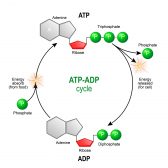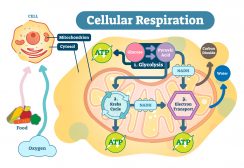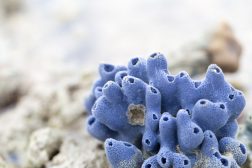Definition
noun, plural: eicosanoids
Any of the substances derived from arachidonic acid or other polyunsaturated fatty acids of 20-carbon length that act as signaling molecules
Supplement
Eicosanoid is the generic term to refer to the compounds derived from arachidonic acid or other polyunsaturated fatty acids of 20-carbon length. They are involved in various physiological and pathological processes. For instance, they are involved in inflammatory, allergic, and other immune responses. They are also associated with the perception of pain, regulating cell growth, and modulating blood flow in tissues. They are an important cell signaling molecules. Many of them perform autocrine signaling in which their targeted cell is the cell of their origin. Others are involved in paracrine signaling where they impact nearby cells or cells in the proximity of the cell that secreted them. Others still are involved in endocrine signaling that target distant cells, and as such function as hormones.
Eucosanoids are produced naturally by the oxidation of arachidonic acid or other polyunsaturated fatty acids of 20-carbon length. They may be categorized as a sub-group of oxylipins (a group of oxidized fatty acids of varying lengths of carbon units). In this case, eicosanoids are oxylipins consisting of 20-carbon units and function in cell signaling.
Some of the prominent eicosanoids include (1) eoxins, (2) leukotrienes, (3) lipoxins, (4) prostacyclin, (5) prostaglandins, (6) resolvins, and (7) thromboxanes.
Word origin: Ancient Greek eíkosi (“twenty”) + eîdos (“form, likeness”)
Synonym(s):
- icosanoid
See also:
Related term(s):
- Receptors eicosanoid







